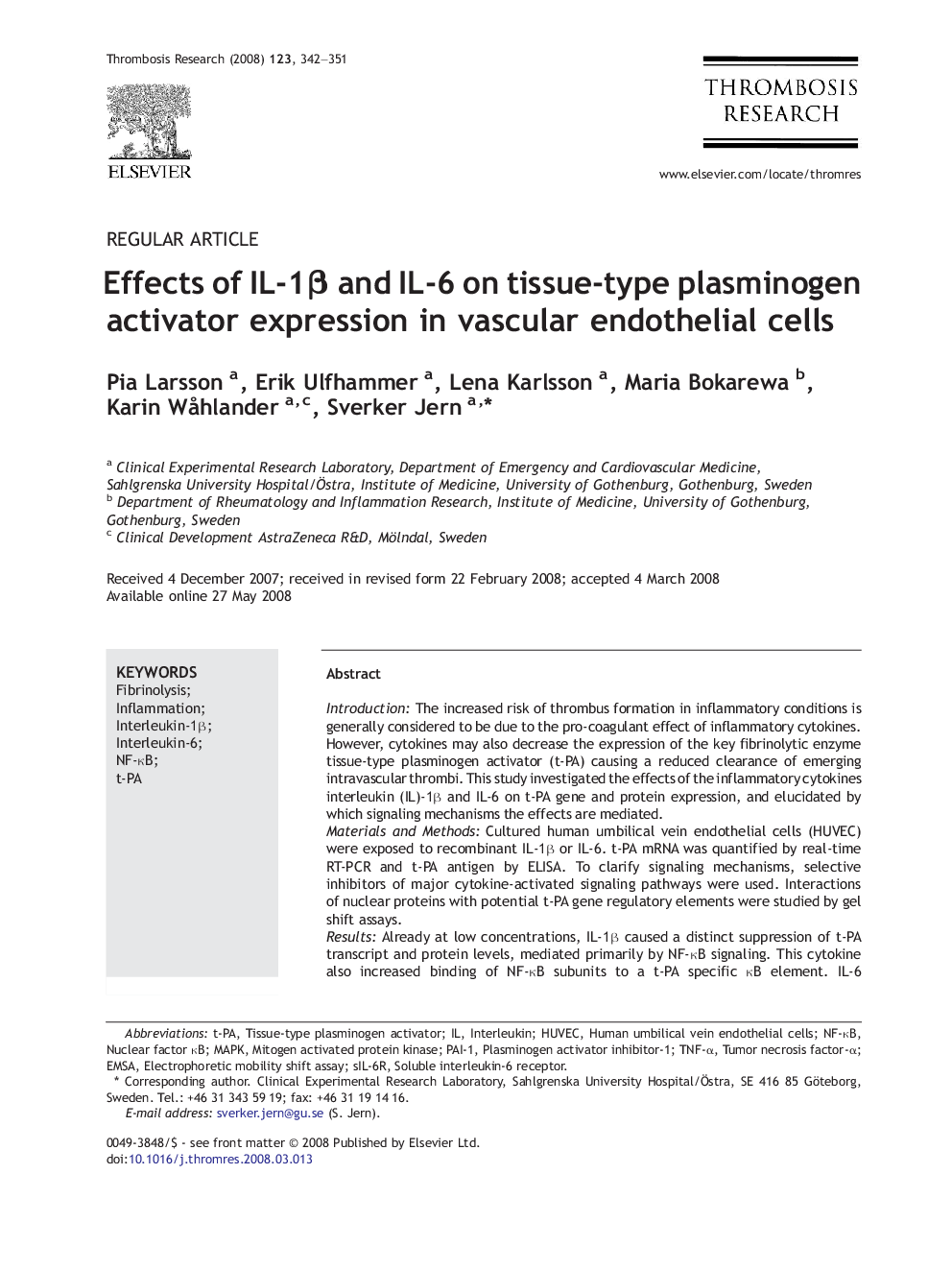| Article ID | Journal | Published Year | Pages | File Type |
|---|---|---|---|---|
| 3028505 | Thrombosis Research | 2008 | 10 Pages |
IntroductionThe increased risk of thrombus formation in inflammatory conditions is generally considered to be due to the pro-coagulant effect of inflammatory cytokines. However, cytokines may also decrease the expression of the key fibrinolytic enzyme tissue-type plasminogen activator (t-PA) causing a reduced clearance of emerging intravascular thrombi. This study investigated the effects of the inflammatory cytokines interleukin (IL)-1β and IL-6 on t-PA gene and protein expression, and elucidated by which signaling mechanisms the effects are mediated.Materials and MethodsCultured human umbilical vein endothelial cells (HUVEC) were exposed to recombinant IL-1β or IL-6. t-PA mRNA was quantified by real-time RT-PCR and t-PA antigen by ELISA. To clarify signaling mechanisms, selective inhibitors of major cytokine-activated signaling pathways were used. Interactions of nuclear proteins with potential t-PA gene regulatory elements were studied by gel shift assays.ResultsAlready at low concentrations, IL-1β caused a distinct suppression of t-PA transcript and protein levels, mediated primarily by NF-κB signaling. This cytokine also increased binding of NF-κB subunits to a t-PA specific κB element. IL-6 stimulation per se did not affect t-PA mRNA or protein levels whereas soluble IL-6 receptor, in the presence of endogenous IL-6, suppressed t-PA expression.ConclusionsWe conclude that the proinflammatory cytokine IL-1β impairs fibrinolytic capacity in vascular endothelial cells by an NF-κB dependent suppression of t-PA expression. In contrast, an effect of IL-6 on t-PA expression could not be detected, probably due to lack of IL-6 receptor expression on HUVEC.
